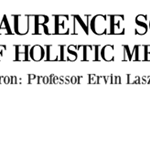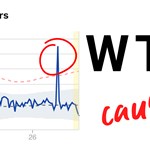-

FEATURE: Frequency Medicine (Part 2) - Devices: Wacky or Worthy?
01 February 2023
Rob Verkerk PhD’s second part of his evaluation of frequency medicine, this time diving deep into devices that measure or deliver frequencies to the body
-

FEATURE: Frequency Medicine (Part 1) – unearthing the mysteries of life
11 January 2023
The first in a two-part series on frequencies by ANH founder, Rob Verkerk PhD. Part 1 explains the intimate relationship between electromagnetism and life, Part 2 (to be published in 2 weeks) will address the benefits and potential risks of frequency based technologies.
-

Laurence Society of Holistic Medicine Annual Conference
07 October 2023
The annual conference of the Laurence Society
-

News Alerts: Week 52, 2020
23 December 2020
High blood sugar levels & covid-19; Genetic engineering health risks; Junk food harms teen sleep; An avocado a day keeps your gut microbes happy; BAME community & vitamin D deficiency; Ayurveda & covid-19
-

Feature: Inflammaging—when older age, the modern world and our immune systems conspire
22 February 2024
On the lead up to the opening of the International College of Integrative Medicine’s Inflammaging conference in New Orleans, Rob Verkerk PhD introduces the subject, and the role of nucleotides and peptides in dealing with this spiralling problem.
-

-

Hoffman & Verkerk dialogue on how to safeguard and protect natural health
22 February 2024
Rob Verkerk PhD joins leading US integrative medicine physician Dr Ron Hoffman on his Intelligent Medicine podcast to talk about the latest threats to natural health and what can be done to counter them
-

FEATURE: Are humans really dying more quickly than expected?
12 January 2024
ANH founder Rob Verkerk reviews excess mortality data and ponders over possible explanations.
News / ANH Covid Zone / Health / Campaigns
-

In case you missed it - Q1 2023
05 April 2023
A roundup of articles and news from January, February and March 2023
-

Speaking Naturally with holistic dentist Dr Elmar Jung
07 February 2024
Robert Verkerk PhD sits down with Dr Elmar Jung to bust some common myths around dental health and how we care for our teeth
What's Hot!
Become a Member!
Become an ANH Pathfinder today and help us co-create new health systems that respect nature as well as human rights and freedoms!
YouTube channel
SUBSCRIBE to our YouTube channel to become part of a growing community of Health Creators

